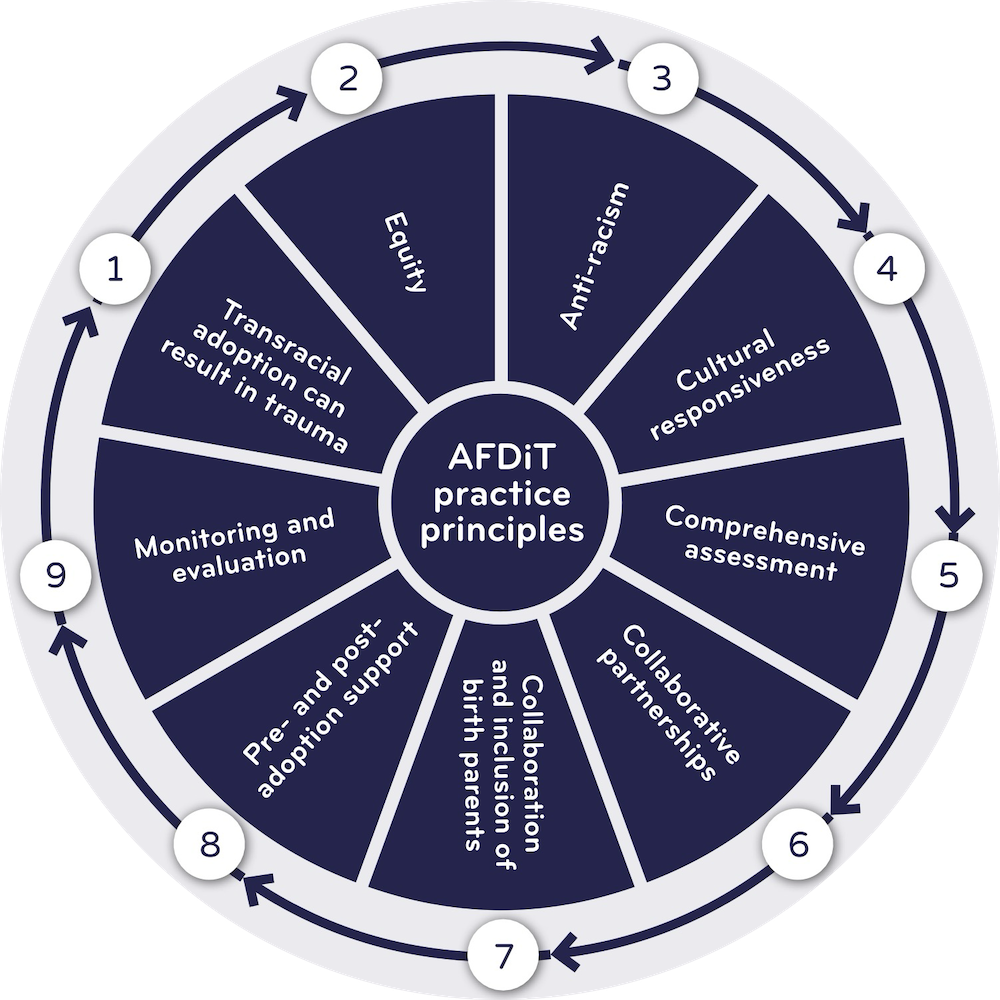The AFDiT Framework
Practice Principles
The framework outlines essential principles and best practices that social workers can employ when working with transracial adoptive families and racialised and minoritised ethnic children.
Click the principles to read more about each one.
Separation, racial and cultural disconnection can lead to trauma/racial trauma. The absence of supporting a child’s cohesive and positive sense of identity and inadequacy of racial socialisation can contribute to the adoptee’s sense of confusion and identity struggles.
Social workers and adopters must explicitly acknowledge and address the structural inequities and racism that minoritised children face within the adoption system.
Practitioners and adopters must see race, ethnicity and difference in order to work actively to address bias and racism that arises from these differences. An anti-racist stance in adoption involves actively opposing discrimination, bias and stereotypes, and striving to eliminate systemic barriers that perpetuate racial inequalities.
AFDiT recognises the importance of cultural identity and connection. Social workers and adopters should prioritise the preservation of a child’s cultural heritage and the need to embrace, celebrate and engage with the child’s cultural links over time.
Comprehensive assessments around the child’s identity and birth families’ ethnic, cultural and religious backgrounds. Including readiness to embrace the child’s heritage should be ongoing to include the provision of adoption support.
This process should include early consideration of adoption linking and matching with the child’s identity and heritage in mind. This is important where minoritised ethnic children are likely to remain in care longer.
Birth parents can be supported to provide comprehensive information regarding the child’s racial and ethnic identity, and to understand potential challenges and benefits of transracial adoption.
Pre- and post-adoption support must be culturally sensitive and tailored to the specific and unique needs of minoritised children and their adoptive families. It must be alert to the current experiences of racism for the child and family.
Regular monitoring and evaluation of transracial adoption practice and approaches’ effectiveness are essential to ensure their impact and identify areas for improvement.

Read all about the Practice Principles by downloading the full AFDiT framework.
